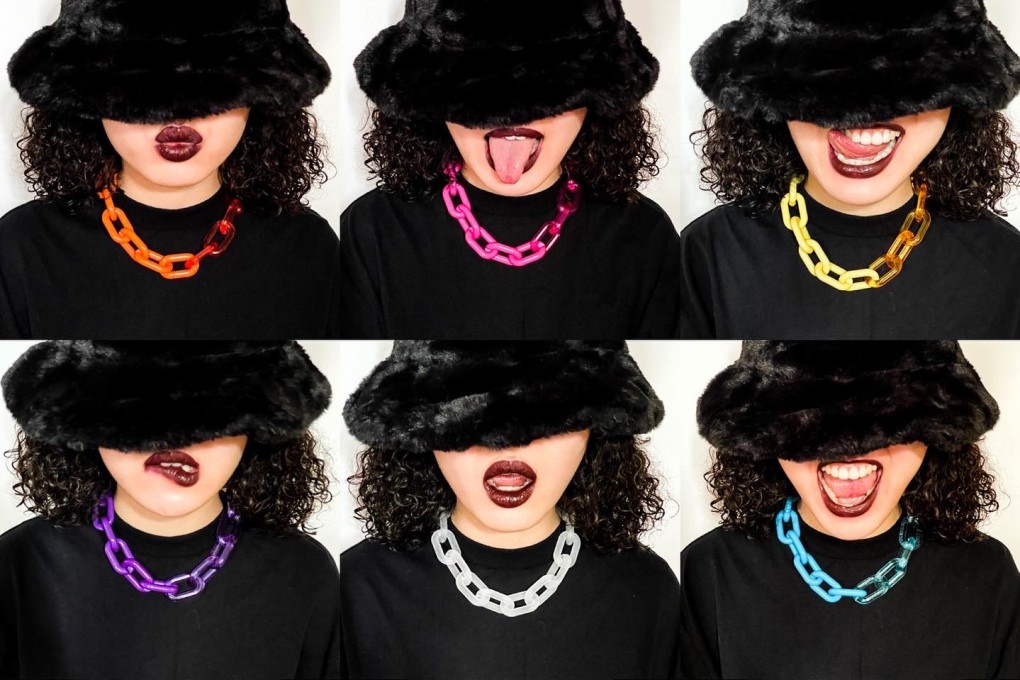3 Covid pandemic-born Hong Kong fashion brands that show how city’s style has evolved
- From crystal-encrusted swimwear to bold, colourful unisex chains and fun, maximalist jewellery, Delirio, Fierce and Juu Juu reflect Hong Kong’s changing style
- Their creations have been worn by celebrities such as Tyson Yoshi, Moon Tang and Gareth Tong, who are helping drive the renewed appreciation of local fashion

Like many Hongkongers, Harriet Lam lost her job during the pandemic.
Before 2020, the music-festival lover worked as cabin crew for Finnair. As someone who used to fly around the world all the time, getting stuck in Hong Kong hit her hard.
“Everybody was so stressed, running around buying surgical masks just to stay stuck here … I didn’t want to be part of global waste generated by masks, and I certainly wanted to do something with my time,” she says.

Lam decided to combine some of her lifelong interests: fashion, music-festival culture and sustainability.
“I found my mom’s sewing machine sitting in the back of her wardrobe, I got on YouTube, and I created Delirio just like that.”
Delirio is a sustainable handmade streetwear and festival-fashion brand based in Sham Shui Po. The brand started off selling reusable masks and has since grown to include accessories and swim wear, all distinguishable by their iconic crystal encrustation.
All the pieces are custom-made: Delirio is a slow-fashion brand, Lam says. She doesn’t want any stock waste.
